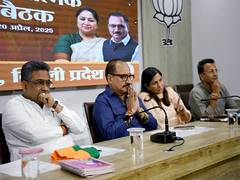Delhi excise ‘scam’: SC agrees to hear Manish Sisodia’s bail pleas in CBI, ED cases on July 14
New Delhi, Jul 10 (PTI) The Supreme Court on Monday agreed to hear the bail pleas of Aam Aadmi Party (AAP) leader Manish Sisodia on July 14 in the excise policy “scam” case being probed by the CBI and the money-laundering matter arising out of it.
A bench of Chief Justice D Y Chandrachud and Justice P S Narasimha agreed to hear the matter after senior advocate Abhishek Singhvi, representing the former Delhi deputy chief minister, urged the court to take it up for hearing on grounds that his wife is seriously ill and hospitalised.
The bench said although the matter is listed for hearing on July 17, it will take it up on July 14.
Sisodia moved the court last week, seeking bail in the CBI and ED cases related to the alleged Delhi excise policy scam.
He has moved the apex court challenging two orders of the Delhi High Court that dismissed his bail pleas in these cases.
Sisodia, who also held the excise portfolio among many that he handled as the deputy chief minister, was arrested by the Central Bureau of Investigation (CBI) on February 26 for his alleged role in the “scam”. He has been in custody since then.
Sisodia resigned from the Delhi cabinet on February 28.
The high court denied bail to him in the CBI case on May 30, saying having been the deputy chief minister and excise minister, he is a “high-profile” person who has the potential to influence the witnesses.
On July 3, the high court declined him bail in the money-laundering case linked to alleged irregularities in the city government’s excise policy, holding that the charges against him are “very serious in nature”.
In its May 30 order, the high court had said since Sisodia was at the “helm of affairs” when the alleged scam took place, he cannot say he had no role to play.
The high court had said with his party still in power in the national capital, Sisodia, who once held 18 portfolios, continues to wield influence and since the witnesses are mostly public servants, the possibility of their getting influenced cannot be ruled out.
Citing the allegations against the senior AAP leader, it had said the excise policy was formed at the instance of the “South Group” with a malafide intention to extend undue advantages to those who were part of the group.
The so-called “South Group” comprises politicians, businessmen and others, including Bharat Rashtra Samithi (BRS) leader K Kavitha, the daughter of Telangana Chief Minister K Chandrasekhar Rao.
The CBI arrested Sisodia for alleged corruption in the formulation and implementation of the now-scrapped Delhi Excise Policy 2021-22, following several rounds of questioning.
Sisodia had challenged in the high court a March 31 order of the trial court that had dismissed his bail plea saying he was prima facie the “architect” of the alleged scam and had played the “most important and vital role” in the criminal conspiracy related to the alleged payment of advance kickbacks of Rs 90-100 crore meant for him and his colleagues in the Delhi government.
The Enforcement Directorate (ED) is investigating the money-laundering case against the AAP leader that stems from the CBI FIR.
According to the CBI and the ED, irregularities were committed while modifying the excise policy and undue favours were extended to licence holders.
The Delhi government implemented the policy on November 17, 2021, but scrapped it at the end of September 2022 amid allegations of corruption.
Sisodia was arrested by the ED in connection with the money-laundering case on March 9. In its July 3 order, the high court had declined him bail in the ED case.
This matter has to be visited with a “different approach” as a deep-rooted conspiracy involving a huge loss of public funds has been alleged, the high court had observed while rejecting Sisodia’s bail application in the money-laundering case.
It had said the AAP leader had failed to pass the “triple test” for bail under the anti-money laundering law, in which the court has to see whether an accused is likely to flee from justice, tamper with evidence or influence witnesses.
The court had noted that according to the ED, the excise policy was framed as a “special purpose vehicle” (SPV) to generate proceeds of crime and with the same motive, M/s Indo spirits was also constituted for regular generation of proceeds of crime.
The ED has alleged that Sisodia got Indo Spirits formed as an SPV vehicle for recoupment of the kickbacks.






